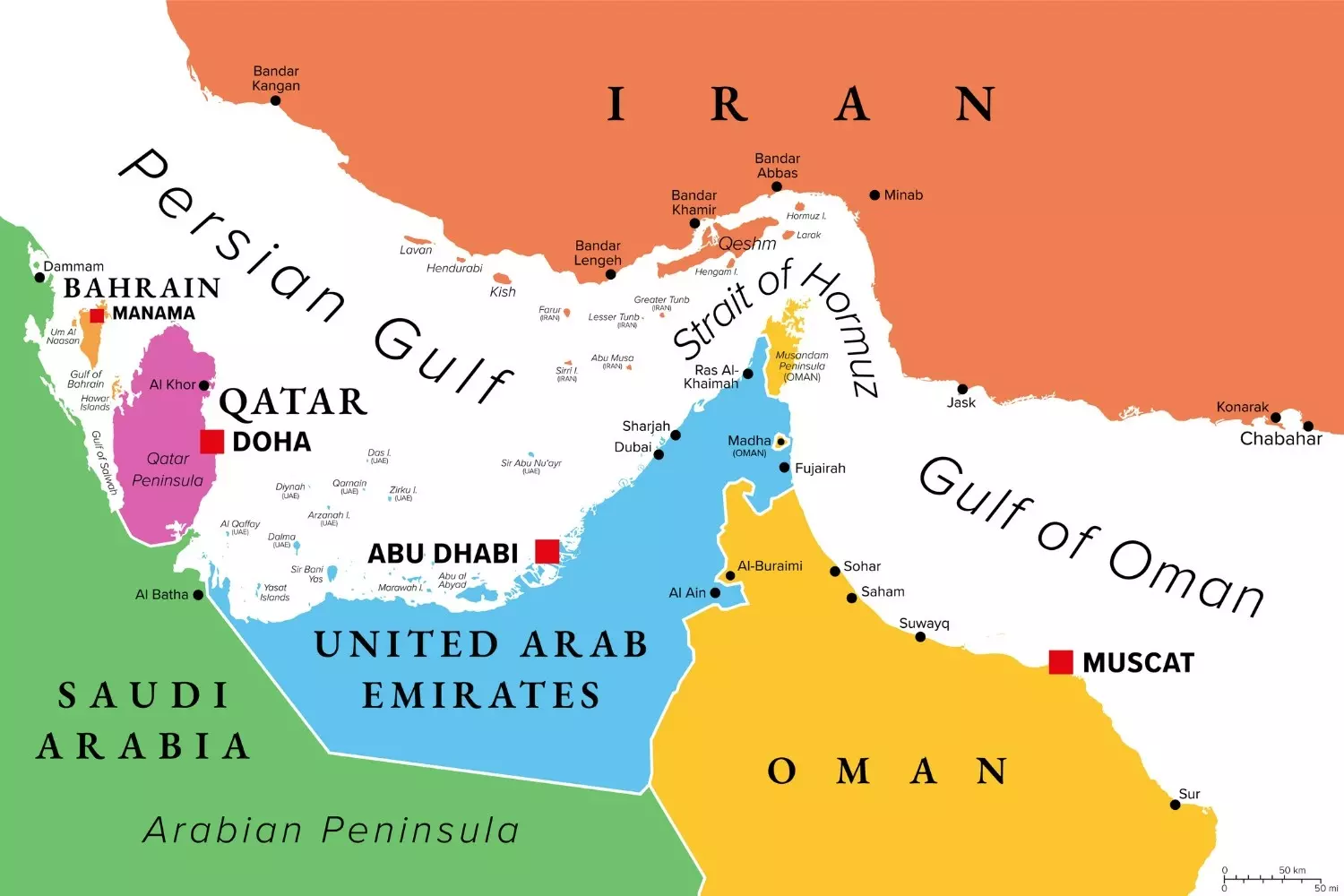
Iran-Israel conflict: Strait of Hormuz, if shut, could send fuel prices in India soaring
A sharp rise in global crude prices would increase costs for India’s state-run oil companies, creating pressure to hike petrol and diesel prices

Iran’s Parliament has threatened to shut down the Strait of Hormuz amid the ongoing conflict with Israel. About 20 per cent of the world’s crude oil supply passes through this strategic waterway.
Also read: Israel-Iran conflict: Why India’s LPG supply could get affected
India imports LPG from Qatar, UAE, and Saudi Arabia via the Strait of Hormuz. Although India can procure crude through alternative routes, a disruption in gas supply could lead to a domestic cooking gas (LPG) crisis.
Day 11 of Israel-Iran conflict: US joins in
It has been 11 days since the Israel-Iran conflict began. The US entered the conflict by supporting Israel and, on June 22 early morning, launched B-2 stealth bombers to drop bunker-buster bombs on three Iranian nuclear sites — Fordow, Natanz, and Isfahan. This US intervention has significantly escalated tensions across the Middle East and West Asia. In retaliation, Iran’s Parliament recommended shutting down the Strait of Hormuz. However, the final decision rests with Iran’s Supreme Leader Ayatollah Ali Khamenei.
A global crisis if Strait of Hormuz is shut
If Iran goes ahead and blocks the Strait of Hormuz, global crude oil supply will be severely disrupted, leading to a sharp price increase. Approximately 20 million barrels of crude oil per day pass through this strait. The region holds about 40 per cent of the world’s crude oil reserves.
Also read: Will Iran's move to block Strait of Hormuz affect oil supplies in India?
Even though India no longer imports crude from Iran, it still imports significant volumes from Iraq, Saudi Arabia, and the UAE — all of which pass through the Strait of Hormuz. India consumes about 5.5 million barrels of crude oil daily, out of which 1.5 to 2 million barrels come via the Strait, and the rest through alternate routes.
India’s diversification strategy
India’s Petroleum and Natural Gas Minister Hardeep Puri, in a recent social media post, assured the public that the government is closely monitoring the geopolitical situation in the Middle East. He highlighted that under Prime Minister Narendra Modi’s leadership, India has diversified its energy supply sources in recent years, reducing dependency on the Strait of Hormuz. Oil marketing companies, he said, have sufficient stock for several weeks, and alternative routes remain functional. He also assured that necessary steps would be taken to ensure uninterrupted fuel supply to citizens.
Reduced dependency on Gulf nations
The Central government believes that even if the Strait of Hormuz is blocked, the impact on India will be limited, mainly because India no longer buys oil from Iran and has reduced its dependency on Gulf countries. Today, 35 per cent of India’s oil imports come from Russia, a shift that accelerated after the Russia-Ukraine war.
India's crude oil import stats (2024–25) as per Union Bank of India’s Banking and Economic Research data
Russia: 35 per cent
Iraq: 19 per cent
Saudi Arabia: 14 per cent
UAE: 10 per cent
USA: 5 per cent
Iran: 0
Fuel price pressure on state oil companies
A sharp rise in global crude prices would increase costs for India’s state-run oil companies, creating pressure to hike petrol and diesel prices. If fuel prices are raised, inflation risks could escalate. Clearly, if the Israel-Iran conflict drags on, India’s economic vulnerabilities may increase.
(This article was originally published in The Federal Desh)

